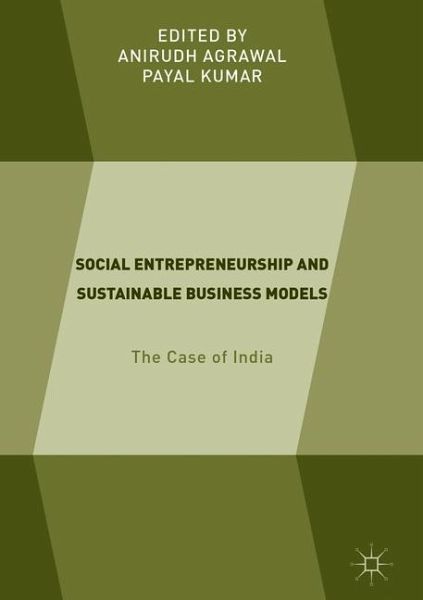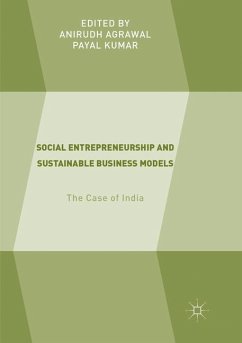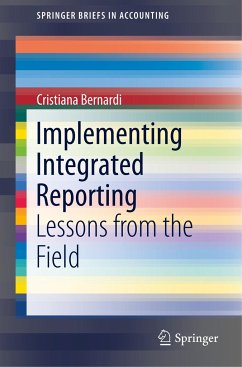
Social Entrepreneurship and Sustainable Business Models
The Case of India
Herausgegeben: Agrawal, Anirudh; Kumar, Payal

PAYBACK Punkte
65 °P sammeln!
Addressing the need for further theorisation and operationalisation of social entrepreneurship in India, this edited collection provides a critical and deeper understanding of the social entrepreneurial ecosystem. Covering topics such as entrepreneurial intentions, empathy, impact investment and standardised social measures, the contributors explore the potential of social entrepreneurship and sustainable business models in an Indian context. Offering empirical cases and presenting a realistic perspective of the social entrepreneurship landscape in India, this collection will undoubtedly be of...
Addressing the need for further theorisation and operationalisation of social entrepreneurship in India, this edited collection provides a critical and deeper understanding of the social entrepreneurial ecosystem. Covering topics such as entrepreneurial intentions, empathy, impact investment and standardised social measures, the contributors explore the potential of social entrepreneurship and sustainable business models in an Indian context. Offering empirical cases and presenting a realistic perspective of the social entrepreneurship landscape in India, this collection will undoubtedly be of value to those interested in creating a social and sustainable impact in business and society.














